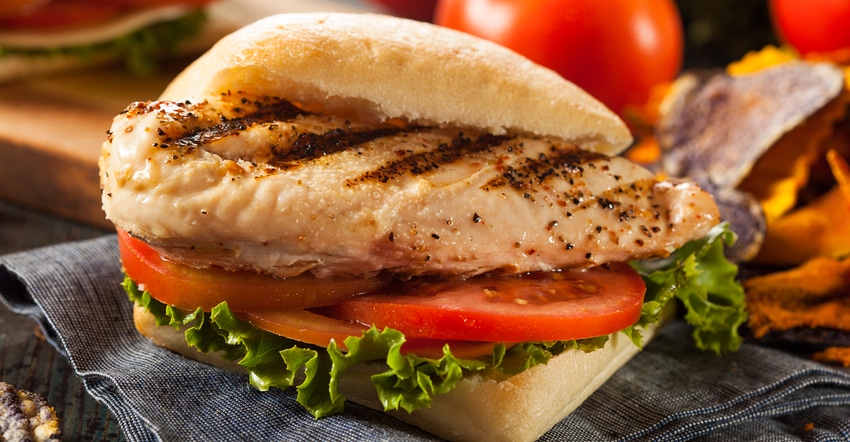December 13, 2017

I am going to say this up front: Food choices are very much a personal decision. Most consumers base decisions on price, availability, nutritional value, freshness, and even local origination, sustainable production practices and beliefs — religious or otherwise. Being a vegetarian or a vegan is a personal choice, as is being a meat eater, which may also include only eating certain meats or food slaughtered and prepared in a certain way.
It is personal. I believe it should always remain that way.
A few years back when my oldest daughter, Elizabeth, was a junior in high school, her best friend, Taylor, was a vegetarian. Taylor’s motto was to not eat anything that once had a face. This seemed to tug at Elizabeth’s heartstrings, who, like most of us, loved and continues to love animals.
Within a few weeks, I found myself buying veggie burgers and other plant-based replacements for what was usually a meat-based menu at our home. It was an inconvenience, and frankly sometimes expensive, to accommodate and prepare two meals. But, this was her choice, and I did not demand, or even pressure, for change. I thought, maybe as a family we should change instead?
I made subtle changes at first. The family always loved vegetables, so including a little more, while downsizing meat’s place on the plate, wasn’t a huge issue. It did get noticed but without too much pushback — until Thanksgiving. There is no replacement for turkey. I don’t care how creative you get with tofu.
Moving on
I continue to prominently include vegetables with every dinner dish, but my family never really intended to go vegetarian. We haven’t.
Elizabeth made it about nine months. Being an athlete, one night she was out with other friends after a game and the aroma of a chicken sandwich (sadly from one of the fast-food chains) broke her. I asked her why? Her response: “I just don’t feel the same, and my energy level and performance have been slipping.” “I like the taste of meat, Mom, but I just hate the thought of killing animals.”
Hence, our dilemma. What would happen if U.S. farmers stopped producing animals for food and Americans went vegan? Some have called for a move in that direction to address increasing concerns about U.S. health, eating habits and climate change.
Here’s where I defer to those smarter than me. Researchers at USDA's Agricultural Research Service and Virginia Tech recently explored those questions and found surprising results.
Mary Beth Hall, an ARS animal scientist at the U.S. Dairy Forage Research Center in Madison, Wis., and Robin R. White, a professor of Animal and Poultry Science at Virginia Tech in Blacksburg, Va., found that shifting land usage from food animal production to food crop production would increase the total U.S. food supply by 23%. Because much of that land is unsuitable for high-value crops, most of the additional food produced would include high-calorie crops like corn and soybeans.
A complete shift away from food animal production would present major challenges to meeting America's nutritional needs. With no meat, milk, eggs, fish or cheese in our diets, the U.S. population would not receive enough of several different essential dietary nutrients from the foods they eat, according to the study results. The findings are based on information compiled in the USDA dietary guidelines.
That’s not to say that carefully balanced diets — vegan, vegetarian, omnivore — cannot meet a person's needs and keep them healthy, but this study examined balancing the needs of the entire nation with the foods we could produce from plants alone.
Eliminating food animals would increase deficiencies in calcium, vitamins A and B12, and some important fatty acids, the study says. The last are important, as they help to reduce cardiovascular disease, as well as improve cognitive function and vision in infants. Animal food products are the only available, non-supplemental sources of some fatty acids and vitamin B12.
A plant-only diet also would require individuals to eat more food and more daily calories to meet their nutritional needs from the foods they eat, because the available foods from plants are not as nutrient-dense as foods from animals.
But what about the environment?
Agriculture in the U.S. contributed to approximately 9% of the nation's total greenhouse gas emissions in 2015, with nearly half of that total coming from animal production, according to Environmental Protection Agency reports. The scientists determined that eliminating food animals from U.S. production would reduce greenhouse gas emissions, but not by the full 49% of agricultural emissions that animals currently contribute. Rather, greenhouse gas emissions from agriculture would drop by 28% without farmed animals because of increases associated with producing additional food crops and the use of more synthetic fertilizer to replace manure. That would represent a drop of only about 2.6% of total U.S. emissions.
I’m not advocating for one way or another — for one standard over another or that one way of living is better than another. It’s personal. But research and science has chimed in with some important information. For me and my family, we’re meat eaters with a lot of vegetables, too. We still love animals.
You May Also Like




